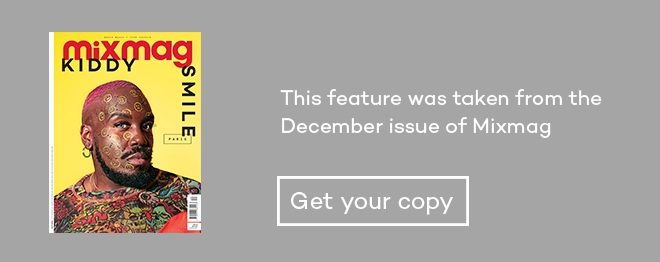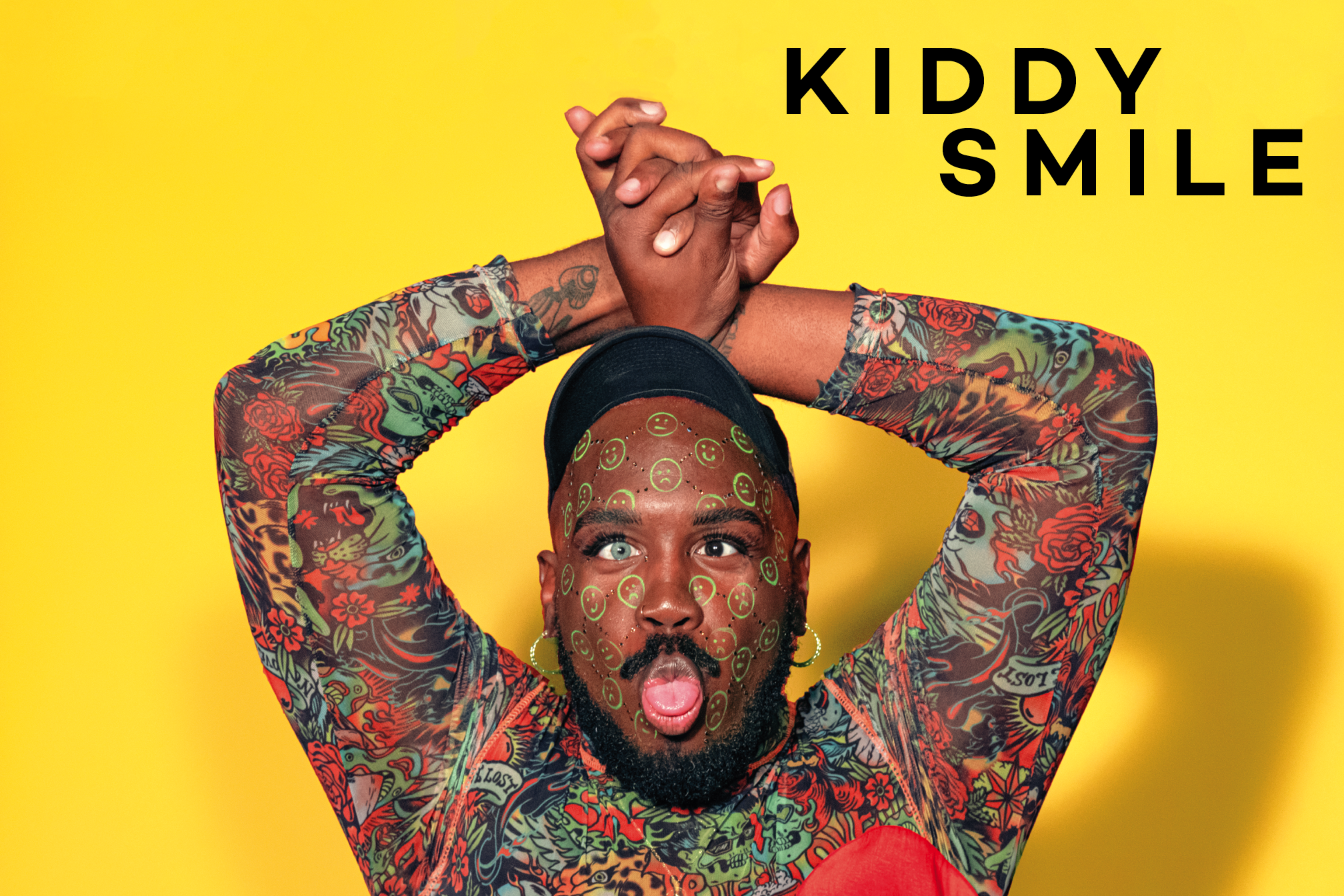 Cover stars
Cover stars
No bullshit: How Kiddy Smile is turning house music on its head
The DJ, producer and fashion provocateur is proudly representing ballroom culture through house music
It’s a Wednesday night in 1920s Parisian cabaret The ‘R’ Pigalle, and in spite of the late hour, the red rococo venue is packed with energy. Cheering rows of voguing regulars in hand-made outfits surround the dancers. Progressing towards the stage bathed in orange neon lights, they take turns to perform limb-twisting routines and thrilling duels of death drops under the spell of MC Matyouz LaDurée. On stage, Keehdi Mizrahi of the iconic House of Mizrahi, aka Kiddy Smile, aka Pierre Hache, looks serene, his towering 6’6” silhouette circling from the decks to the jury’s table. Tonight, surrounded by his friends, and dressed with untypical restraint in a sober leather jacket, he is launching The 5th Element, a new monthly club night with a spirit every bit as intense and colourful as those of the venue’s Jazz Age heyday.
It’s been quite a journey for the French star, who was raised in a council estate in the bleak Paris banlieue (suburbs). First known as one of the capital’s famous door pickers, the former party promoter and professional dancer is now making waves in the dance music world with his signature blend of 80s and 90s house, disco exuberance and enough ballroom sass to electrify dancefloors the world over. Despite a punishing touring schedule and work for the likes of Balmain, Balenciaga and Alexander Wang, fashion provocateur Kiddy Smile has never forgotten his roots.
Read this next: The Cover Mix: Kiddy Smile
“I’ve seen him work so hard, very focused on his goals and his career without ever leaving his community behind, and that’s one of his most inspiring traits”, explains friend, activist and collaborator Ari De B, aka Habibitch from the House of Mizrahi, sitting on the jury this evening.
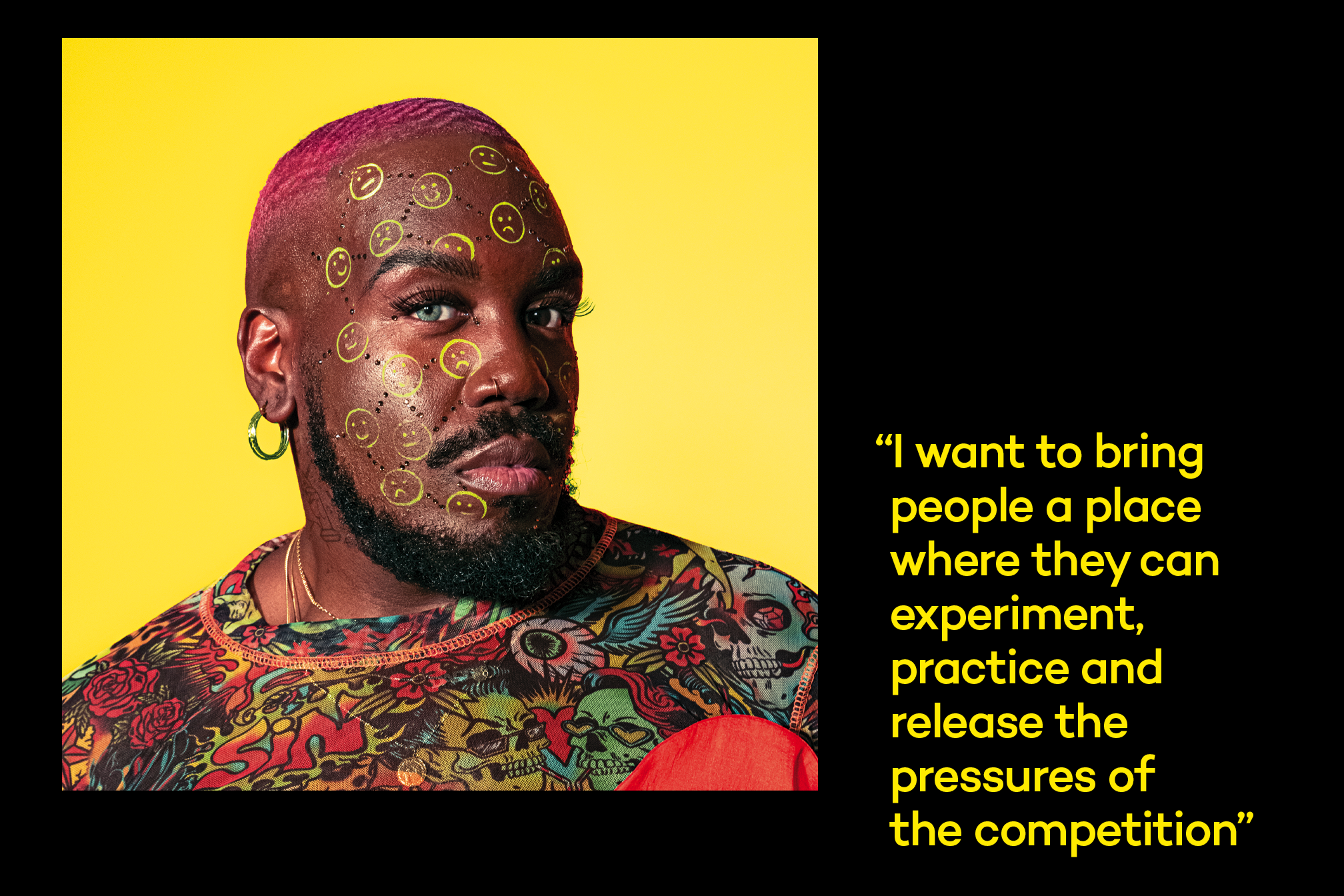
In France, few dance music artists have made it to the front page of national newspapers. But when Pierre received a last-minute invitation to DJ at the Elysée to perform in front of president Emmanuel Macron, instead of wearing his usual rip-roaring outfits, he went surrounded by a troupe of ball dancers, wearing a simple black T-shirt with a slogan reading ‘Immigrants’ son, black and faggot’. It caused a bit of a stir: to Pedro Winter, who invited him to the presidential palace, the scandal “was undoubtedly a turning point in his career. He was able to transform the stupidity of bigot reactions into strength in order to win a fight, and to rally around himself an army who will fight to raise awareness.”
Read this next: A brief history of voguing
In a country where homosexuality is not represented by black men in the media, Lazy Flow, DJ and producer from the House of LaDurée explains that “[Kiddy] enabled many black, gay people to understand that they were not alone, and – I quote – not ‘sick’, and that ballroom is a social shelter where they could blossom, meet, support each other, be themselves and shine”.
“Pierre is the only black, queer artist visible in France, and with so much visibility his impact is paramount. He represents and carries his identities with pride and by doing so, opens many doors to racialized LGBTQ+ communities, which helps all of us,” says Ari De Be. With his frank smile, towering presence, flamboyant outfits and no-bullshit attitude, Kiddy Smile has turned the rather vanilla genre house music had become in Paris on its head.
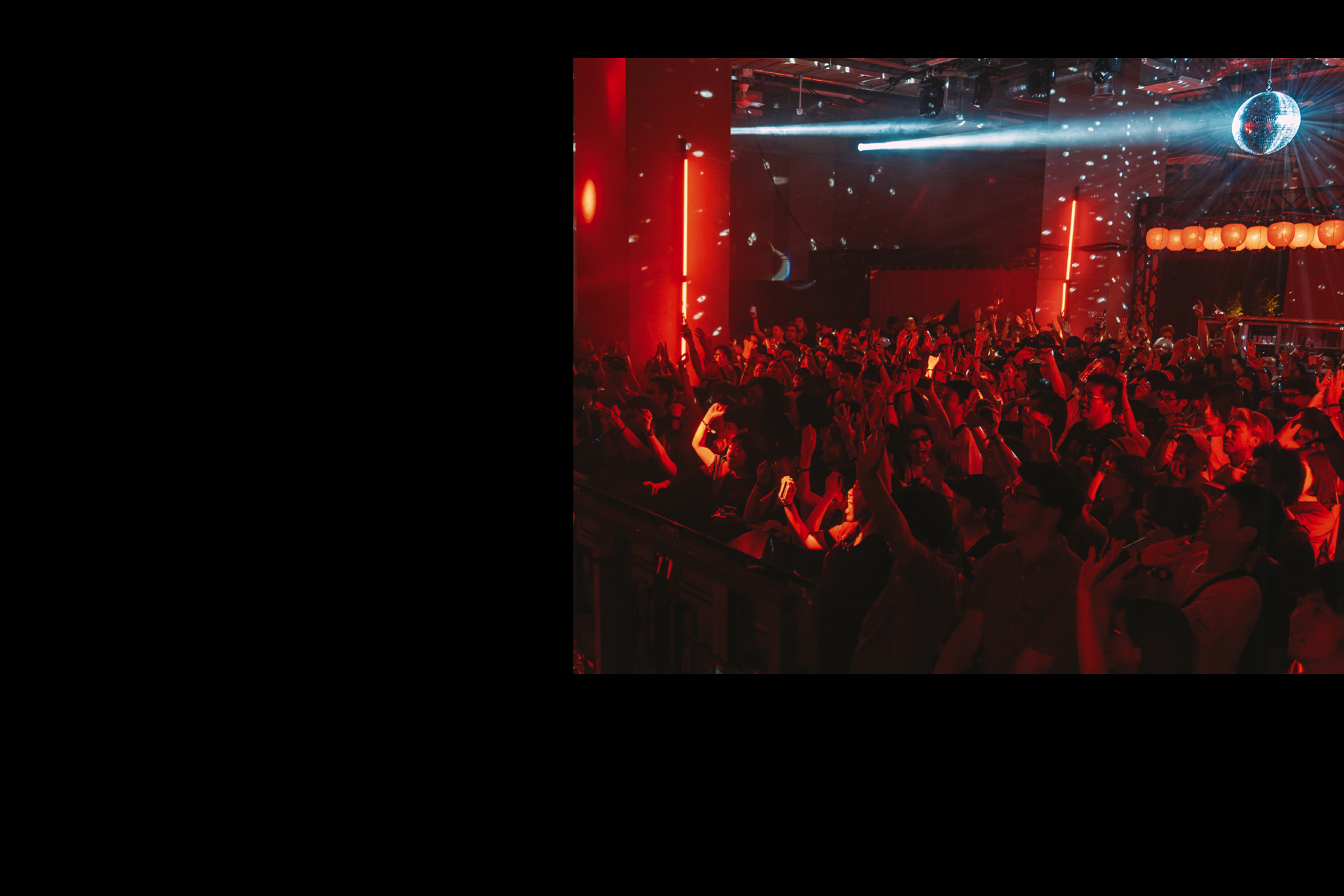
We met him in his favourite hotel at the heart of his neighbourhood: the 10th arrondissement of Paris.
Dance was your first passion; after being picked for a George Michael music video, you almost got to dance for Madonna...
“When I started to take dance seriously and to have some success as a dancer, I had this obsession: to dance for Madonna. [She] was someone who would put different body shapes on stage, give space to individualities. After going through some health issues, I trained myself again, learned new types of dance, and finally made it to the audition. It was very selective. I went all the way up, until the last round. When they didn’t pick me, they explained it was because they couldn’t find me a suitable partner.”
What made you turn to a career in music?
“I came back from New York very deflated – I felt like I had done everything I wanted to do in the dance world. Then I reflected on myself, and wondered what I had to say as an artist, why I wanted to dance for that woman. The first time I was touched by Madonna, it was when she did ‘Like A Prayer’. It was my first political wake-up call. In hindsight, I realised I’d always loved music, always tried to make some. But being from a very modest family, it was difficult to access instruments. So I thought, ‘Instead of being on stage to support someone else’s message, why wouldn’t I create my own message, tell my own story? It’s worth telling’.
"I wanted to do it in a way that would make people dance, with a modern feel. House music, which was something I discovered through dance, was presented to us in France as something that wasn’t black and gay, but a very white and elitist scene. I first heard it through hip hop and house dance, although even house dance was itself a rather elitist circle. It’s only when a friend contacted me to come to a Jersey gig that I discovered it was the perfect mix between hip hop and house. That’s how I discovered the black, LGBT+ roots of house, and I felt it was the perfect medium for me to communicate without openly talking about homosexuality.”
Read this next: Politics and dance music are intertwined and there's nothing you can do about it
You’ve worn many hats on the club and electronic scene: door picker, promoter, dancer and now DJ...
“Around the same period, 2010, I got a residence at the Social Club – Opulence. The first one was with MikeQ. And that’s the same time that I got into the voguing scene. Lasseindra Ninja and Steffie Mizrahi got in touch, told me that young people needed more competitions – they existed, but in non gay-friendly settings, like hip hop competitions. I went for the idea as a way to start my night, so when people came for the DJ set there was already a vibe. When I saw them dance, I understood how I would have loved to have something like that when I was younger. Immediately I wanted to get involved, help them with my existing contacts in clubs, find DJs, and so on.”
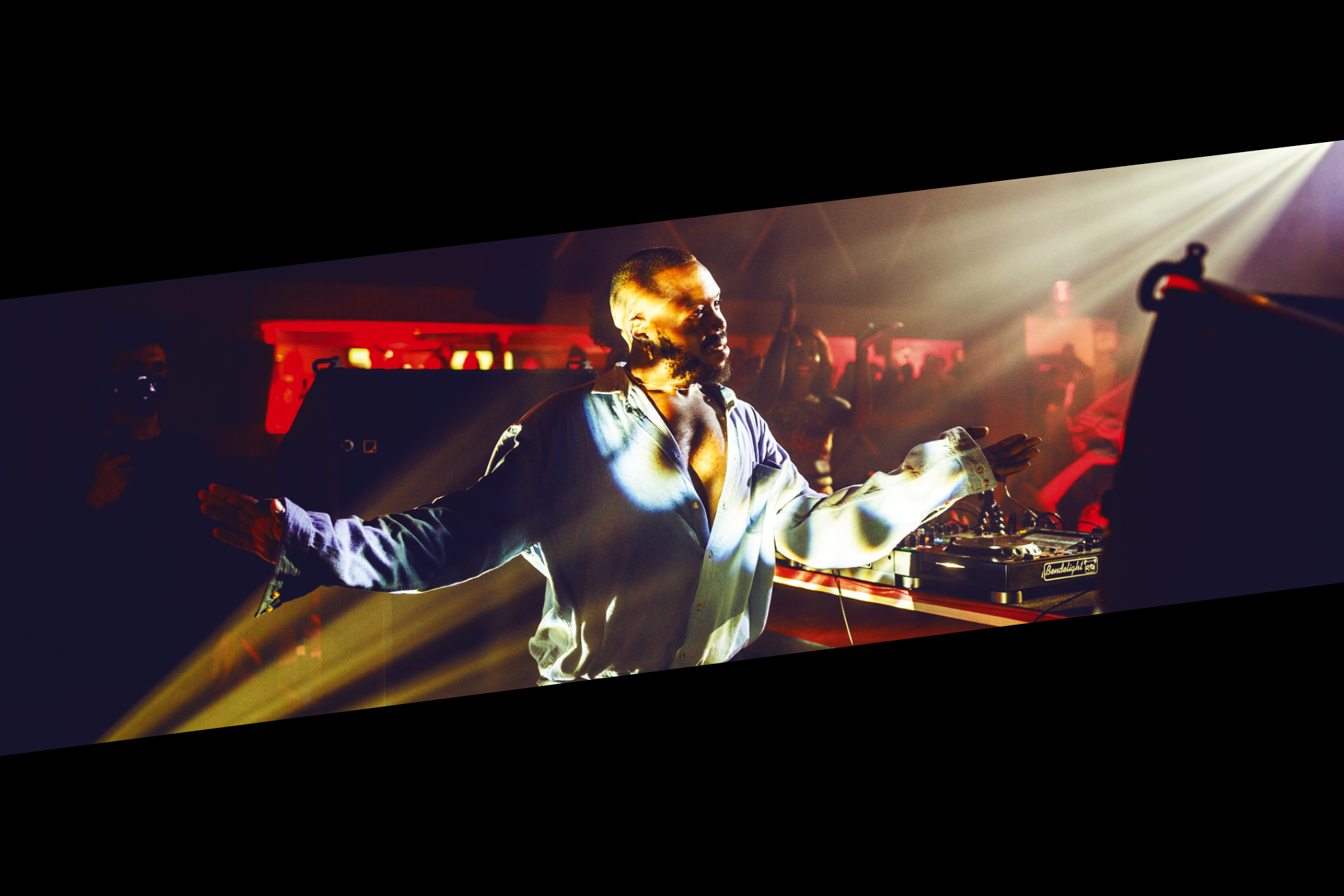
How do you bring the values of ballroom into your DJ sets and live show ?
“I start with something classic, a seminal disco track, before getting into very groovy sounds with a focus on house music history, then into afro and queer sounds, depending on people’s sensitivity. But my music isn’t ballroom per se. I make house with a ballroom universe around it. Just like when you get into a ball, nobody explains anything to you. My show isn’t a ball, and isn’t structured to showcase my house. But I bring visual, language elements into my show – like chants, and edits. For example, I use the intro of ‘Cunty’ by Kevin Aviance before my track ‘Let A Bitch Know’. It’s a huge pillar of the ballroom community. It’s my way to pay tribute.
“There’s more than ballroom to my project, but I’m proud to represent this culture and I’m delighted to be a part of it. That’s why I keep participating in balls – and it’s sometimes a logistical nightmare for my team – but it’s a community that allowed me to structure my own identity at a difficult time. And now it’s my turn to give back.”
Would you say that your work and your visibility have had an impact on black LGBT+ communities in France?
“It doesn’t progress at the same pace for everyone. Some live their oppression in an intersectional way: it’s easier for me to be me in everyday life than it is for a black trans woman. When my first project went out, my family got very worried; they asked me, ‘Do you realise you’re one of the first? You’re going to face a lot of backlash, [a lot of] annoying questions...’ And indeed, after the Elysee show, it was violent. I thought I was doing something right – I didn’t think it was worth a headline, I was just speaking about myself. How can expressing oneself be so problematic in my country? The day after, there was a ball, and I was super anxious, I thought people would be angry: voguing was being slated on national TV. But when I got to the runway, people got up and applauded. It went straight to my heart. For the first time, I thought that even if everyone doesn’t get along in this community, they were really supporting me. It was very strong.”
Read this next: The first major exhibition showcasing the ballroom scene is here
The 5th Element is the name of your new party, and a reference to your favourite film. What’s the motivation behind the project?
“I was obsessed with [The Fifth Element] as a teenager – I loved the character [played by] Chris Tucker. In voguing, there are different pillars that make up the dances, and they are called ‘elements’. The most well-known of them is vogue femme, and it is made of five elements. I want to bring people a place where they can experiment, practice, release the pressures of the competition; create a lab where people can have fun outside the ball, train – a place to chill, and meet your community.”
What kind of mark would you like to leave on the dance music scene?
“I’d start by re-establishing the fact, in people’s minds, that electronic music was born from black, Latino and LGBT communities... I had a chat with Laurent Garnier and when he said everyone knew house music came from Chicago, a predominantly black city, I couldn’t believe it. When I wanted to listen to something French, I’d listen to DJ Mehdi, who was probably the darkest-skinned musician of the whole scene over here. Even today, I don’t feel like other French black DJ/producers are advocating anything LGBT+. Less seriously, I often say I’d like to be the Beyoncé of house music!”
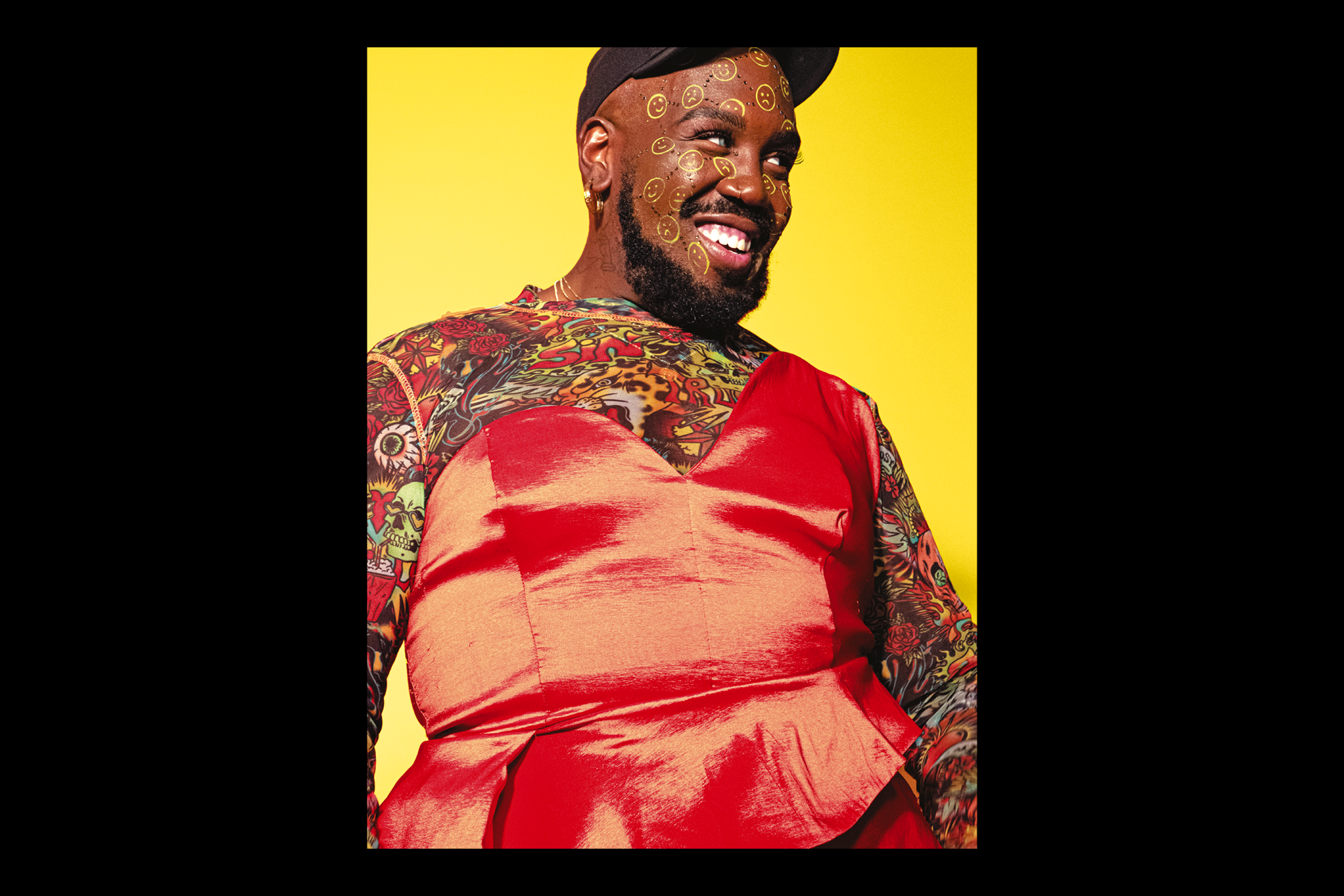
Your music video for ‘Let A B!tch Know’ (on Defected), filmed in a Parisian banlieue, made a big splash in 2016...
“I had people coming to me to thank me and say ‘It’s good, you’ve got courage to show this’. I also had other people, people of colour from LGBT+ backgrounds, who said, ‘Thank you for showing that I exist, what everyday life could have been if mentalities in our neighbourhood had been more open-minded’. During the filming, we got attacked, people threw stuff at us. Even after, there were threats and harassment towards people from the filming crew.”
Which international house artists do you feel close to at the moment?
“Honey Dijon. She was a bit cold at the beginning, but now we’re good friends, we worked on a song together. And The Black Madonna. She was playing at Sónar, and we’d wanted to meet in person for a while. She ended up inviting me to sing ‘Let A B!tch Know’ in her closing set. I hesitated; I thought it’d be weird as people wouldn’t know who I was – the year before it was Róisín Murphy! But we went with all my friends, we danced, and it was awesome. She became a really good friend of mine and invited me to sing and talk on her album.”
Frankie Knuckles is also an influence of yours. Did you ever get to meet him?
“I met him when I started to make music; he was mixing after a friend of mine on BBC Radio 1. I went to see him and we talked about music. I was very humbled, I told him what I wanted to do... back then I was working on an album, which I initially wanted to be house-led, but it was going in the wrong direction. He told me, ‘it’s important, what you’re doing – you need to carry on, we need more people like you’.”
Marie-Charlotte Dapoigny is Mixmag France's Digital Editor, follow her on Twitter
Read this next: Get the best of Mixmag direct to your Facebook DMs


